Kitchen cabinets are prone to accumulating oil and grease over time, especially in areas close to the stove and oven. Keeping them clean not only maintains the aesthetic appeal of your kitchen but also ensures a hygienic environment. Today we will cover different methods and tips for effectively cleaning oil from kitchen cabinets, including natural and chemical cleaning solutions, preventive measures, and common mistakes to avoid.
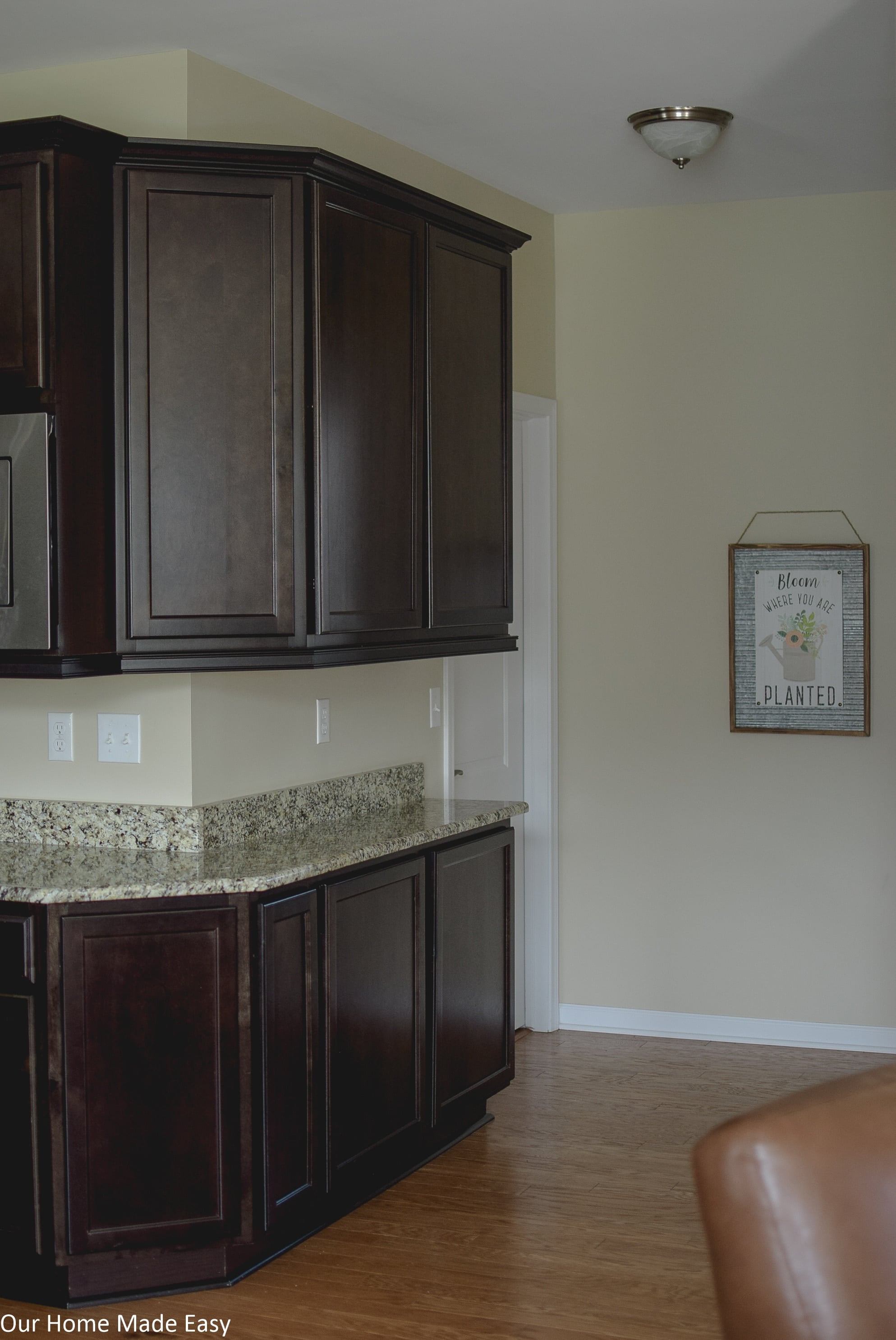
Why Oil Accumulates on Kitchen Cabinets
Cooking Byproducts
When you cook, oil and grease particles are released into the air and can settle on nearby surfaces, including your kitchen cabinets. This is especially true for frying or sautéing, where oil splatters are more likely. Over time, these particles build up, creating a sticky residue that attracts dust and dirt, making the cleaning process more challenging.
Ineffective Ventilation
Poor kitchen ventilation can exacerbate the problem of oil accumulation. Without adequate ventilation, airborne grease particles have no escape route and will settle on surfaces within the kitchen. Ensuring your kitchen has proper ventilation, such as an effective range hood or exhaust fan, can help reduce the amount of oil that lands on your cabinets.

Frequency of Use
The more frequently you use your kitchen, the more likely your cabinets are to accumulate oil. High-traffic kitchens where meals are prepared daily will see a faster buildup of grease compared to kitchens that are used less frequently. Regular cleaning is essential in such scenarios to prevent the oil from hardening and becoming more difficult to remove.
Cabinet Material
The type of material your cabinets are made from can also affect how oil and grease accumulate. Wooden cabinets, for instance, are more porous and can absorb oil, making them harder to clean. On the other hand, laminate or painted cabinets might not absorb oil as easily but can still develop a greasy film on the surface.
Natural Cleaning Solutions
Vinegar and Water Solution
One of the most effective and natural ways to clean oil from kitchen cabinets is by using a vinegar and water solution. Mix equal parts of white vinegar and warm water in a spray bottle. Spray the solution onto the greasy areas and let it sit for a few minutes to break down the grease. Wipe it off with a clean, damp cloth. Vinegar is a natural degreaser and can effectively cut through oil without leaving harmful residues.
Baking Soda Paste
Baking soda is another excellent natural cleaner that can help remove stubborn oil stains. Create a paste by mixing baking soda with a small amount of water. Apply the paste to the greasy areas using a soft cloth or sponge and gently scrub in a circular motion. Baking soda’s mild abrasive properties help lift the grease without scratching the cabinet surface. Rinse with a clean, damp cloth and dry thoroughly.
Lemon Juice and Salt
Lemon juice is a natural degreaser, and when combined with salt, it becomes an effective cleaning agent for greasy cabinets. Cut a lemon in half, dip it in salt, and use it to scrub the oily areas of your cabinets. The acidity of the lemon juice helps break down the grease, while the salt acts as a gentle abrasive. After scrubbing, wipe the area with a damp cloth and dry with a clean towel.
Dish Soap and Warm Water
A simple solution of dish soap and warm water can also be very effective for cleaning oil from kitchen cabinets. Mix a few drops of dish soap with warm water and use a sponge or cloth to scrub the greasy areas. Dish soap is designed to cut through grease and can be used safely on most cabinet surfaces. Rinse with a clean, damp cloth to remove any soap residue and dry thoroughly.

Chemical Cleaning Solutions
Commercial Degreasers
For tougher grease stains, commercial degreasers can be very effective. These products are specifically formulated to dissolve grease and oil quickly. Follow the instructions on the product label, and always test the degreaser on a small, inconspicuous area first to ensure it does not damage the cabinet finish. Apply the degreaser to the oily areas, let it sit for the recommended time, and wipe away with a clean cloth.
Ammonia Solution
Ammonia is a powerful cleaner that can cut through stubborn grease. Mix one part ammonia with three parts water in a spray bottle. Spray the solution onto the greasy areas and let it sit for a few minutes. Use a sponge or cloth to scrub the area, then wipe away with a clean, damp cloth. Be sure to work in a well-ventilated area and wear gloves to protect your skin when using ammonia.
Rubbing Alcohol
Rubbing alcohol can also be used to clean oil from kitchen cabinets. It evaporates quickly and cuts through grease effectively. Dampen a cloth with rubbing alcohol and wipe down the greasy areas. For stubborn spots, you can let the alcohol sit for a few minutes before wiping it away. Rinse with a clean, damp cloth to remove any residue and dry thoroughly.
Multi-Purpose Cleaners
Many multi-purpose cleaners available on the market are effective at removing grease from kitchen cabinets. Look for a cleaner that specifically mentions its ability to cut through grease. Follow the instructions on the product label for best results. Typically, you will spray the cleaner onto the greasy areas, let it sit for a few minutes, and then wipe it away with a clean cloth.
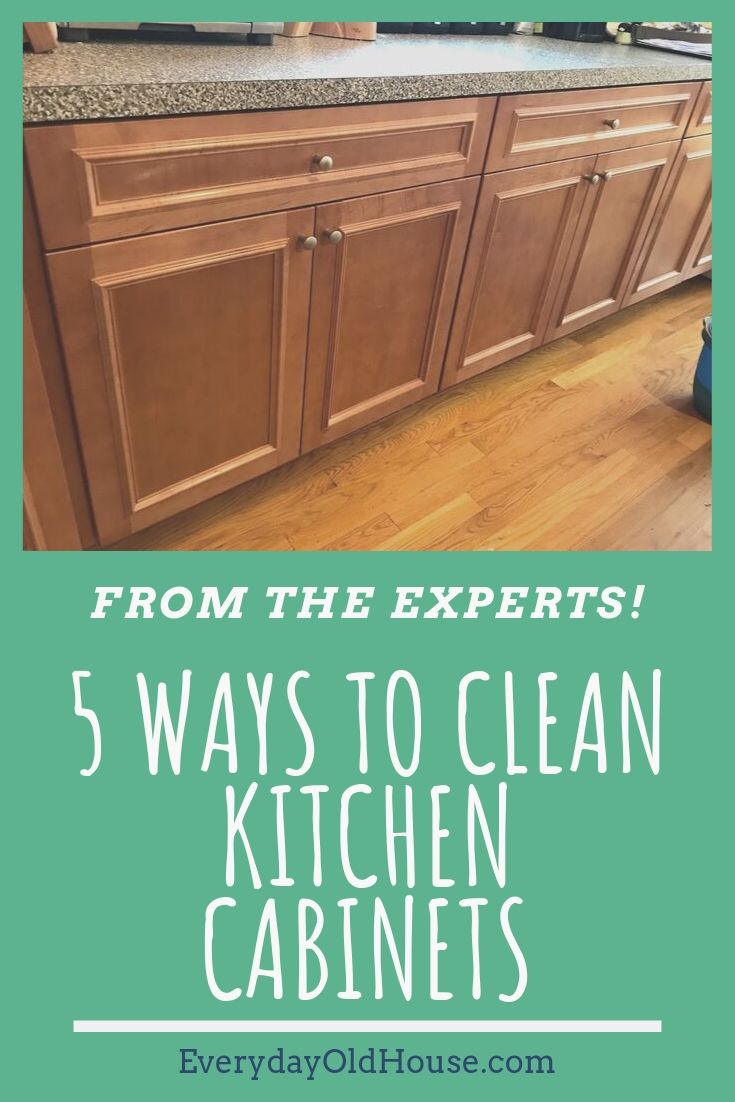
Preventive Measures to Keep Cabinets Oil-Free
Regular Cleaning Schedule
Establishing a regular cleaning schedule can help prevent the buildup of oil on your kitchen cabinets. Wipe down your cabinets weekly with a mild cleaner to remove any grease before it has a chance to accumulate. Regular maintenance keeps your cabinets looking clean and reduces the effort required for deep cleaning sessions.
Use of Range Hoods and Ventilators
Using range hoods and ventilators while cooking can significantly reduce the amount of airborne grease that settles on your cabinets. Ensure that your range hood is functioning properly and clean its filters regularly. Effective ventilation helps capture and remove grease particles from the air, keeping your kitchen cabinets cleaner.
Splatter Screens and Lids
When cooking, especially when frying or sautéing, use splatter screens or lids to minimize oil splatters. These tools can catch most of the grease particles before they have a chance to settle on your cabinets. This simple precaution can reduce the frequency and intensity of cleaning required.
Cabinet Liners and Covers
Consider using cabinet liners and covers to protect the interior surfaces of your cabinets. Liners can catch spills and splatters, making it easier to clean the insides of your cabinets. They can be replaced periodically, ensuring that the cabinet surfaces remain in good condition.

Tips for Cleaning Different Cabinet Materials
Wooden Cabinets
Wooden cabinets require gentle cleaning methods to avoid damaging the wood or finish. Use natural cleaners like vinegar and water or a mild dish soap solution. Avoid excessive water and harsh chemicals, as these can damage the wood. Always dry the cabinets thoroughly after cleaning to prevent moisture damage.
Laminate Cabinets
Laminate cabinets are generally easier to clean than wooden cabinets. A mixture of dish soap and warm water is usually sufficient to remove grease. For tougher stains, a commercial degreaser or rubbing alcohol can be used. Avoid abrasive cleaners and tools that can scratch the laminate surface.
Painted Cabinets
Painted cabinets can be cleaned with a mixture of dish soap and warm water. Be gentle to avoid damaging the paint. For stubborn grease, use a vinegar and water solution or a commercial cleaner designed for painted surfaces. Rinse with a damp cloth and dry thoroughly to prevent water spots and damage.
Stainless Steel Cabinets
Stainless steel cabinets require specific cleaning methods to avoid streaks and maintain their shine. Use a mixture of dish soap and warm water, followed by a clean, damp cloth to rinse. Dry with a microfiber cloth to prevent water spots. For a polished finish, you can use a stainless steel cleaner or polish.

Common Mistakes to Avoid
Using Abrasive Cleaners
One of the most common mistakes is using abrasive cleaners or scrubbers on kitchen cabinets. These can scratch the surface and damage the finish, making the cabinets look worn and old. Always opt for non-abrasive cleaners and soft cloths or sponges to preserve the cabinet’s appearance.
Ignoring Ventilation
Ignoring proper ventilation can lead to faster grease buildup on your cabinets. Always use your range hood or exhaust fan while cooking to minimize the amount of airborne grease. Regularly clean and maintain your ventilation system to ensure it operates efficiently.
Overlooking Regular Cleaning
Failing to clean your cabinets regularly can result in a thick, stubborn layer of grease that is difficult to remove. Establish a routine cleaning schedule to prevent grease buildup and make maintenance easier. Regular cleaning is less time-consuming and more effective than infrequent, deep cleaning sessions.
Using Too Much Water
Using excessive water to clean cabinets, especially wooden ones, can cause damage. Water can seep into the wood, leading to swelling, warping, and other issues. Use damp cloths rather than soaking the cabinets, and always dry the surfaces thoroughly after cleaning to prevent moisture damage.
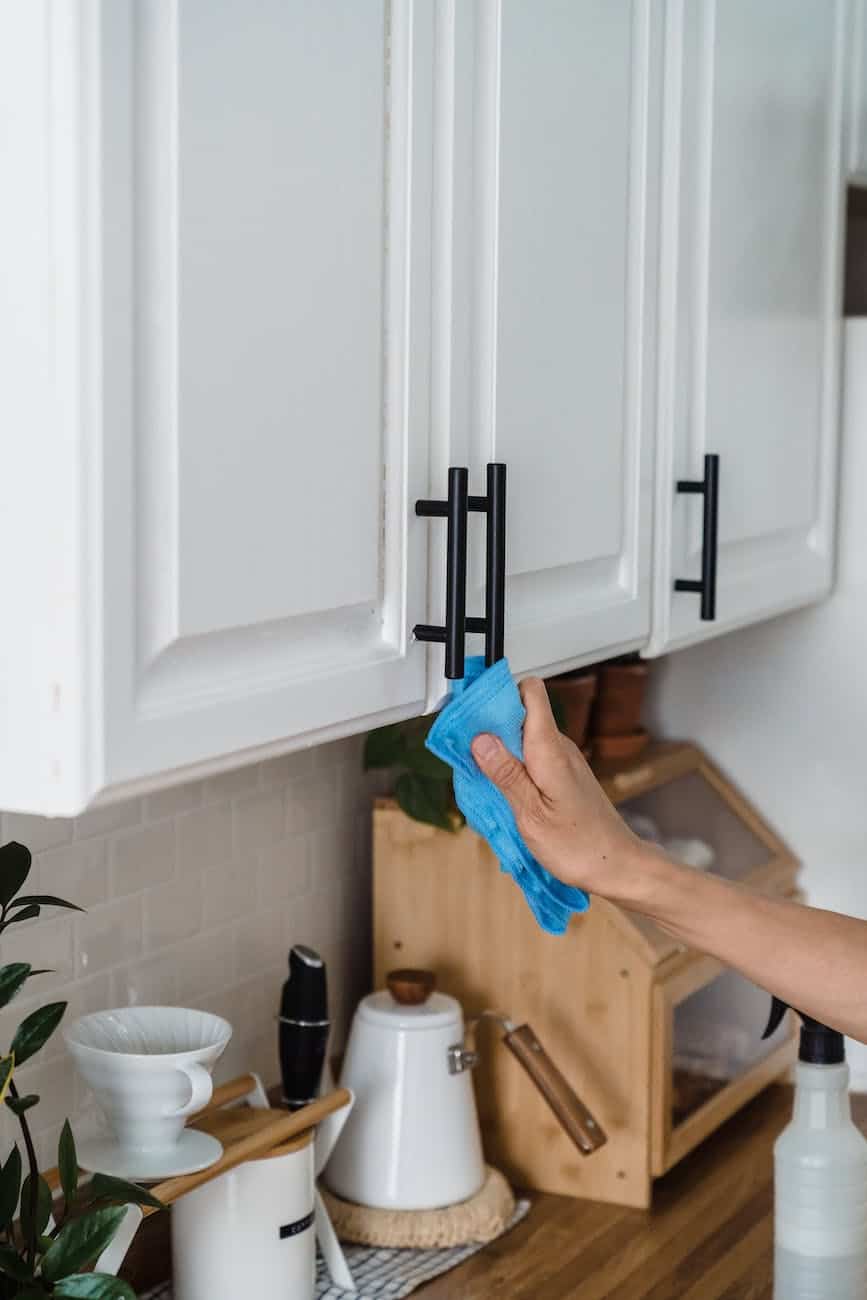
What is the best natural cleaner for removing oil from kitchen cabinets?
The best natural cleaner for removing oil from kitchen cabinets is a mixture of white vinegar and water. Equal parts of vinegar and warm water can effectively break down grease without leaving harmful residues. Spray the solution onto the greasy areas, let it sit for a few minutes, and wipe it off with a clean, damp cloth. This method is safe for most cabinet surfaces and provides a chemical-free cleaning option.
How often should I clean my kitchen cabinets to prevent oil buildup?
To prevent oil buildup, it is recommended to clean your kitchen cabinets weekly. Regular maintenance prevents grease from accumulating and hardening, making it easier to clean. Wipe down your cabinets with a mild cleaner, such as a mixture of dish soap and warm water, to remove any grease particles. For high-traffic kitchens, more frequent cleaning may be necessary to keep the cabinets in optimal condition.
Can I use a commercial degreaser on all types of kitchen cabinets?
Commercial degreasers can be effective on many types of kitchen cabinets, but it is important to choose a product that is suitable for your specific cabinet material. Always read the product label and test the degreaser on a small, inconspicuous area first. For wooden cabinets, opt for milder degreasers to avoid damaging the wood. Laminate and stainless steel cabinets can usually withstand stronger degreasers, but it’s still important to follow the manufacturer’s instructions.
Are there any homemade remedies for cleaning stubborn grease stains on kitchen cabinets?
Yes, several homemade remedies can effectively clean stubborn grease stains on kitchen cabinets. A paste made from baking soda and water can be applied to the greasy areas and gently scrubbed with a soft cloth. Lemon juice combined with salt can also be used as a natural abrasive to break down grease. Additionally, a mixture of dish soap and warm water or a solution of vinegar and water can help remove tough stains. These remedies are safe, cost-effective, and usually found in most households.
How do I maintain the finish of my kitchen cabinets after cleaning?
Maintaining the finish of your kitchen cabinets after cleaning involves using the right cleaning products and methods. Avoid abrasive cleaners and tools that can scratch the surface. Use mild, non-abrasive cleaners and soft cloths or sponges. After cleaning, rinse the cabinets with a damp cloth to remove any residue and dry them thoroughly to prevent water spots and damage. Regular polishing with a furniture polish or wax designed for your cabinet material can also help maintain the finish and protect the surface from future grease buildup.
How to Clean Wood Cabinets DIY
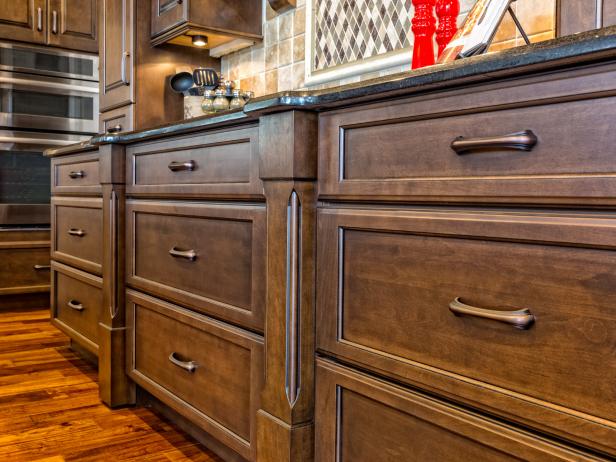
How To Remove Grease From Kitchen Cabinets Before Painting

The Simplest Way to Clean Kitchen Cabinets
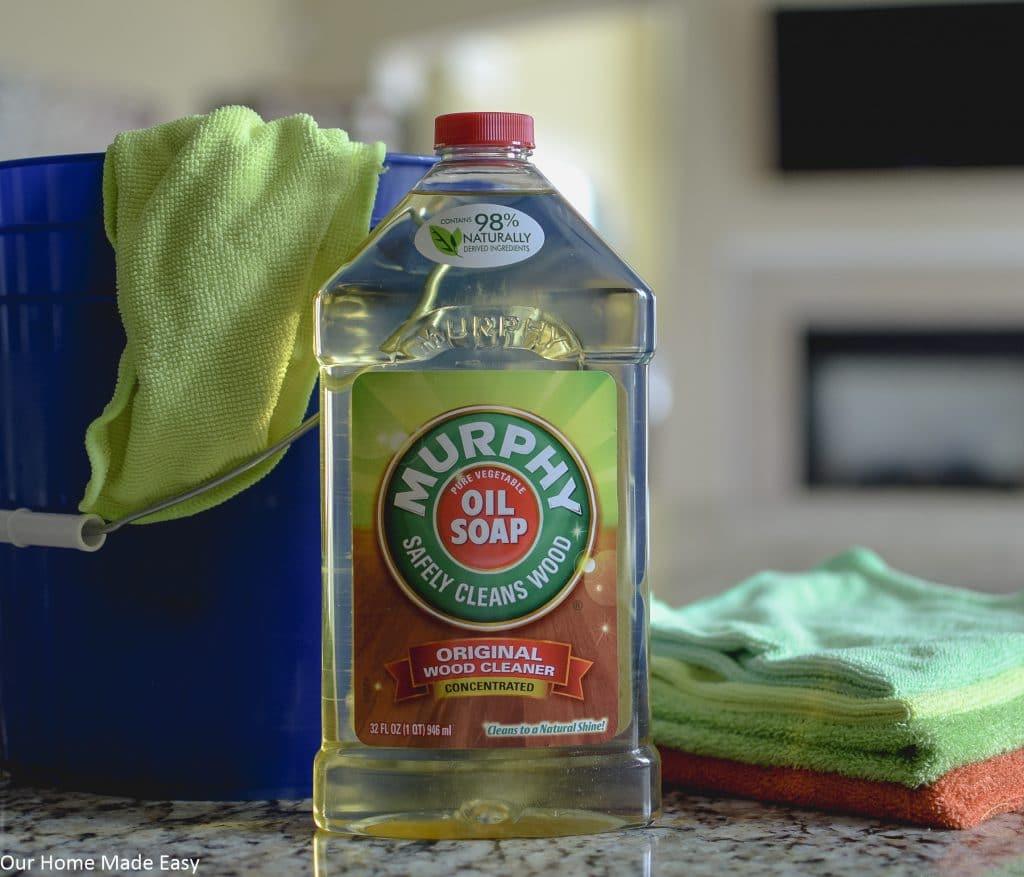
Wood Restoration Products Wood Furniture Restoration Touch Of Oranges

Cleaning Kitchen Cabinets With Baking Soda And Coconut Oil
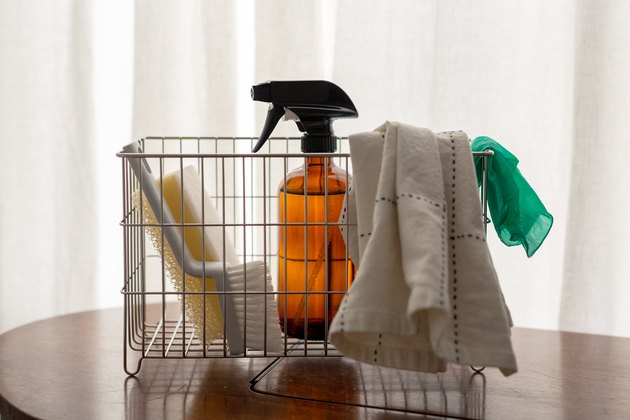
How To Clean Kitchen Cabinets Before Painting
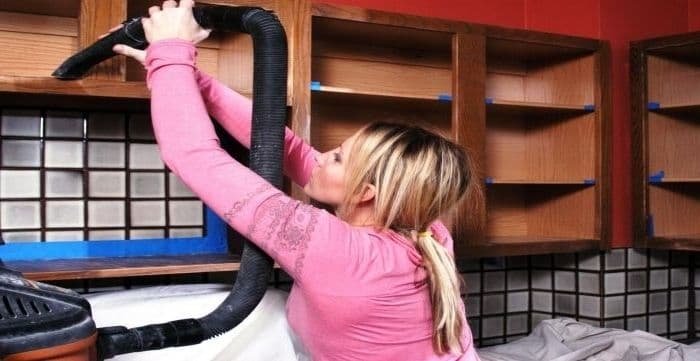
How to clean kitchen oily net ,how to clean your kitchen

Related Posts:
- Country Style Kitchen Cabinets
- Kitchen Designs With Maple Cabinets
- Discount Kitchen Cabinets Dallas
- How To Cut Crown Molding Angles For Kitchen Cabinets
- How To Repair Kitchen Cabinet Hinges
- Kitchen Cabinets Hollywood Fl
- 32 Kitchen Cabinet
- Martha Stewart Kitchen Cabinet Paint Kit
- How Much Do Kitchen Cabinet Doors Cost
- How To Lighten Dark Cabinets In Kitchen